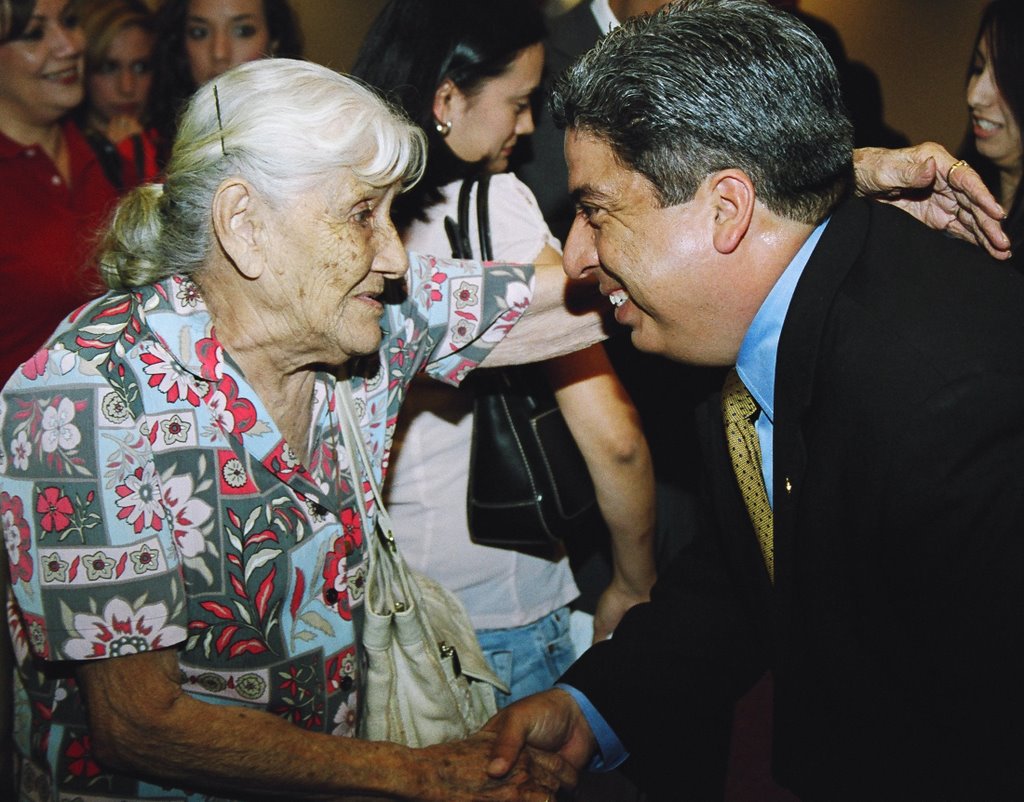By Maggie Gallagher
The most moving part of Sam Alito's Senate testimony Monday was about his immigrant father: "He grew up in poverty. Although he graduated at the top of his high school class, he had no money for college. And he was set to work in a factory, but at the last minute, a kind person in the Trenton area arranged for him to receive a $50 scholarship." It was enough to buy tuition at a local college and "one used suit."
It was enough to change a man's life.
Sam Alito called his dad's story "typical." Sam Alito's America is a place full of opportunity, where human lives can be changed by "hard work and perseverance" but also by generosity, the "power of a small good deed."
By the time Alito got to Princeton in the late '60s, he saw another view of America. "I saw some very smart people and very privileged people behaving irresponsibly, and I couldn't help making a contrast between some of the worst of what I saw on the campus and the good sense and the decency of the people back in my own community."
Thus was a conservative jurist born.
By the time Sam Alito got to Yale law school, something else had begun to change: the role of the university in creating class mobility. "Meritocracy" was originally used by Ivies as an excuse to erect barriers to academically gifted Jews. By the early '60s, elite colleges had sought to transform themselves into engines of meritocracy, places where intellectually gifted kids could be plucked from obscurity and launched toward achievement. Yale was a leader of that educational movement, says Jerome Karabel in a new book, "The Chosen."
Increasingly, however, the cherished ideal of education as an engine of class mobility is going head to head with the ideal of education as a meritocracy based on academic ability.
According to an essay in the current issue of Yale alumni magazine, only 3 percent of students at highly selective colleges come from families in the bottom economic quartile. Just 15 percent of Yale students now benefit from a new initiative designed to help students whose families earn less than $60,000 (or, a little above the U.S. household median). Meanwhile, two-thirds of all students who score at least 1300 on SATs come from the top quartile of family income, while just 3 percent come from the bottom quartile.
As America gets better at making sure nothing gets in the way of ability, a new fixed class of privilege may be emerging: a cognitive elite. Here's my theory: America's past success at creating a culture of opportunity (including women) means that America has gotten very good at identifying those with cognitive ability and funneling them toward elite institutions. There, they meet, marry each other and reproduce powerful social advantages for their children through at least three mechanism: genes, human capital and moral capital. Children born to, say, two Yale grads are more likely to be born with cognitive ability, and to have parents who can educate them informally and also encourage successful habits (from doing homework to intellectual curiosity).
Meanwhile, smart, disciplined, focused, poor 18-year-olds like Sam Alito's dad, whose lives can be transformed by $50 (or even full local college tuition), are still out there, but they are surely harder to find these days. The new barriers to success among poor children (fatherlessness, neighborhood chaos, poor schools, rampant substance abuse and a distracting sexual culture) are not the type that college admission officers can do much about.
Which is no excuse for the rest of us who live in Sam Alito's America to give up trying. I bet Alito's dad used to say, like mine did: "When the going gets tough, the tough get going."
(Readers may reach Maggie Gallagher at MaggieBox2004@yahoo.com.)
Thursday, January 12, 2006
Subscribe to:
Post Comments (Atom)


No comments:
Post a Comment